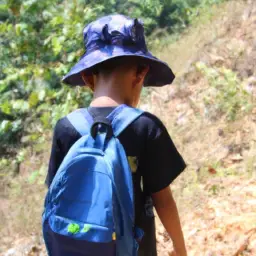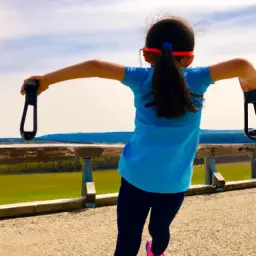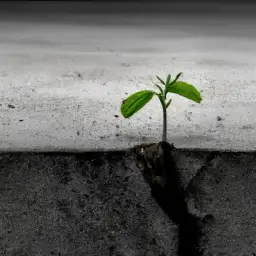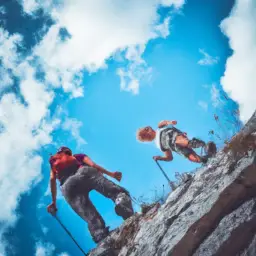Do you often find yourself struggling to bounce back from setbacks and challenges in your life? Building a resilient mindset can be a challenging task, but the good news is that it is possible with the right tools and strategies.
Two key factors that can help you develop a resilient mindset are grit and social skills. Grit refers to the ability to persevere and maintain focus on long-term goals, even when faced with obstacles and setbacks. It involves a combination of passion, perseverance, and resilience.
On the other hand, social skills refer to the ability to communicate effectively and build positive relationships with others. Both grit and social skills can help you navigate difficult situations and bounce back from challenges, making them crucial components of a resilient mindset.
In this article, we will explore the role of grit and social skills in building a resilient mindset and provide strategies for developing both of these important traits.
Key Takeaways
- Grit and social skills are key factors in developing a resilient mindset.
- Building resilience involves setting small achievable goals, seeking feedback, and continuously pushing oneself outside of comfort zones.
- Social skills refer to the ability to communicate effectively and build positive relationships with others, and can be developed through practice and exposure to various social situations.
- Grit can be taught by helping individuals identify passions, set long-term goals, break down goals into achievable steps, and stay motivated through setbacks.
Understanding Grit and Its Importance
You gotta understand that grit is crucial to building a resilient mindset if you wanna achieve success in life.
Perseverance and grit are often used interchangeably, but they’re not the same thing. Perseverance is the ability to persist in the face of adversity, while grit involves having a passion and a long-term goal that you’re willing to work hard for.
Grit is what separates those who give up from those who keep going, even when things get tough.
Understanding the difference between perseverance and grit is important, especially for educators who wanna teach their students how to develop a growth mindset.
Teaching grit involves helping students identify their passions and setting long-term goals. It also involves teaching them how to break down those goals into smaller, achievable steps, and how to stay motivated even when they face setbacks.
By teaching grit, educators can help their students develop the resilience and determination they need to overcome obstacles and achieve success in all areas of their lives.
The Role of Social Skills in Building Resilience
Hey there! Let’s talk about the role of social skills in building resilience.
Social skills are the abilities that allow you to communicate effectively with others, build positive relationships, and navigate social situations with confidence.
They are crucial in building resilience because they help you connect with others and find support when facing challenges.
By developing strong social skills, you can thrive in difficult situations and build a more resilient mindset.
Definition of social skills
Social skills refer to the ability to communicate effectively, cooperate with others, and form positive relationships. It’s a vital component of social competence, which plays a crucial role in building resilience.
Social skills aren’t innate, as they can be learned and developed through practice and exposure to various social situations. Having excellent social skills allows you to interact with others in a positive and effective manner. It enables you to express yourself clearly and understand the needs and perspectives of others.
Social skills help you build supportive relationships, which can provide you with emotional support during difficult times. Moreover, it allows you to develop a sense of belonging and become an active member of your community, which is essential in building resilience.
Therefore, it’s essential to invest time and effort in developing your social skills, as it can have a significant impact on your ability to cope with stress and adversity.
The importance of social skills in building resilience
Having strong interpersonal abilities is crucial to developing resilience, as it allows individuals to form supportive relationships and effectively navigate challenging situations. Social support is a key factor in building resilience, as it provides individuals with a sense of belonging, security, and comfort during times of stress. Those with strong social skills are more likely to have a network of supportive relationships that can help them cope with adversity and bounce back from setbacks.
In addition to social support, emotional intelligence is another important skill that contributes to resilience. Emotional intelligence refers to the ability to recognize and manage one’s own emotions, as well as understand and influence the emotions of others. Individuals with high emotional intelligence are better equipped to regulate their own emotions when faced with stress and are more skilled at communicating effectively with others, which can lead to stronger relationships and greater social support. Developing these skills can help individuals build a resilient mindset and better navigate the challenges of life.
| Emotion | Positive Response | Negative Response |
|---|---|---|
| Happiness | Smiling, Laughter | Crying, Withdrawal |
| Anger | Assertiveness, Problem-Solving | Aggression, Violence |
| Sadness | Seeking Support, Self-Care | Isolation, Self-Harm |
How social skills can help individuals thrive in difficult situations
Developing strong interpersonal abilities can be the key to thriving in difficult situations, as it allows individuals to form supportive relationships and effectively navigate challenging circumstances.
Emotional intelligence, which includes self-awareness, empathy, and effective communication, is essential in building these interpersonal connections. By being emotionally intelligent, you can better understand your own feelings and those of others around you.
This understanding can help you communicate effectively, which is crucial in building strong interpersonal connections. When you have a support system of people who understand and care for you, it becomes easier to navigate difficult situations.
Being able to rely on others can give you the strength and resilience needed to overcome obstacles and thrive in the face of adversity.
The Relationship Between Grit and Social Skills
You can improve your resilience by honing your grit and social skills, as they’re closely linked. Grit is the ability to persevere and maintain focus on long-term goals, even in the face of obstacles. Social skills allow you to effectively communicate and collaborate with others, building a support network that can help you bounce back from adversity.
Together, grit and social skills form a powerful combination that can help you develop a resilient mindset.
To illustrate the importance of grit and social skills, consider the following list:
-
When faced with a setback, grit allows you to stay focused on your long-term goals, while social skills enable you to seek support and advice from others.
-
Grit helps you push through difficult times, while social skills allow you to build strong relationships with others, which can provide emotional support during challenging times.
-
A high level of grit and emotional intelligence allows you to work well in a team, which can help you achieve your goals more effectively.
-
Finally, the combination of grit and social skills can help you build a sense of purpose and meaning in your life, which can be a powerful source of motivation during difficult times.
By developing your grit and social skills, you can build a resilient mindset that will help you navigate life’s challenges with greater ease and confidence. So take the time to invest in yourself and cultivate these important qualities – you won’t regret it!
Strategies for Developing Grit
Enhancing one’s perseverance and determination by incorporating specific strategies can lead to a stronger ability to overcome obstacles and achieve long-term goals. One of the key benefits of grit is the ability to persist through adversity, and this requires staying motivated even when facing challenges.
One effective strategy for developing grit is to set small, achievable goals that build momentum towards larger, more complex goals. This allows you to experience success along the way, which can be highly motivating and help you stay focused on your long-term objectives.
Another important strategy for developing grit is to cultivate a growth mindset, which involves embracing challenges as opportunities for learning and growth. This means reframing setbacks and failures as temporary setbacks rather than defining moments, and using these experiences to develop resilience and adaptability.
Additionally, seeking out feedback and constructive criticism can help you identify areas for improvement and build upon your strengths. By staying committed to your goals and continuously pushing yourself outside of your comfort zone, you can develop the perseverance and grit needed to overcome obstacles and achieve success in all areas of your life.
Strategies for Developing Social Skills
If you want to develop your social skills, there are a few key points to keep in mind.
First, communication techniques are essential. Learn how to listen actively, express yourself clearly, and read body language to better understand others.
Second, building strong relationships takes time and effort. Invest in your friendships and be willing to make compromises.
Finally, collaborating effectively with others means learning how to work towards common goals, manage conflict, and contribute to a team.
Communication techniques
Using effective communication techniques, such as active listening and clear expression, can greatly improve your social skills and build a more resilient mindset.
Active listening involves fully engaging with the person you’re speaking with, paying attention to their words and nonverbal cues, and responding in a way that shows you understand their perspective. It’s important to avoid interrupting or dismissing their thoughts, as this can damage the rapport you’re trying to build.
Assertive communication is another key communication technique that can help improve your social skills. This involves expressing your thoughts and feelings in a clear and direct manner, while still being respectful of the other person’s feelings. It’s important to avoid aggressive communication, which can come across as threatening or dismissive, as well as passive communication, which can make it difficult for others to understand your needs and desires.
By practicing active listening and assertive communication, you can improve your social skills and build a more resilient mindset that helps you navigate difficult situations with confidence.
Building strong relationships
To establish meaningful connections with others, you must invest time and effort into cultivating strong relationships that are built on trust, mutual respect, and effective communication. Building trust is an essential aspect of developing strong relationships. Trust is earned over time through consistent actions and behavior that demonstrate reliability, honesty, and integrity. When you’re trustworthy, others feel safe and secure in your presence, which allows them to open up and be vulnerable with you.
Active listening is another vital skill for building strong relationships. When you actively listen to someone, you’re fully present and engaged in what they’re saying. You demonstrate that you value their perspective and are interested in understanding their thoughts and feelings. Active listening helps to build rapport and fosters a deeper connection between you and the other person.
By building trust and practicing active listening, you can cultivate strong relationships that’ll support you in building a resilient mindset.
- Show genuine interest in others
- Be authentic and transparent
- Practice empathy and compassion
- Be reliable and consistent
- Communicate effectively and respectfully
Collaborating effectively with others
Now that you’ve learned the importance of building strong relationships, it’s time to focus on the next step in building a resilient mindset: collaborating effectively with others.
This means developing your teamwork skills and learning how to work with others to achieve common goals. Effective collaboration involves communication, flexibility, and a willingness to compromise.
It means being open to different ideas and perspectives, and being able to adapt to changes in plans or situations. By working effectively with others, you can build stronger and more productive relationships, which can help you overcome challenges and bounce back from setbacks.
So, take the time to develop your teamwork skills and practice effective collaboration with those around you.
Putting It All Together: How Grit and Social Skills Can Help Build a Resilient Mindset
By mastering both grit and social skills, you can cultivate a resilient mindset that empowers you to overcome challenges and thrive in adversity. Personal examples of building resilience through grit and social skills show that these traits are essential for success. For instance, when you encounter a setback, instead of giving up, you can use grit to persist and find a solution to your problem. In the same vein, social skills allow you to build a support network of family, friends, and mentors who can offer guidance, encouragement, and practical help when you need it.
The impact of technology on the development of grit and social skills in modern society cannot be ignored. While technology has made many aspects of life more convenient, it has also created new challenges that require grit and social skills to overcome. For example, social media can be a source of stress and anxiety, especially when you compare yourself to others online. However, by developing grit and social skills, you can learn to navigate these challenges and use technology in a way that enhances your life rather than detracts from it. The following table summarizes some of the ways in which grit and social skills can help you build a resilient mindset in the face of adversity.
| Grit | Social Skills | Resilient Mindset |
|---|---|---|
| Persistence | Communication | Optimism |
| Courage | Empathy | Adaptability |
| Growth mindset | Relationship-building | Problem-solving |
| Self-discipline | Conflict resolution | Self-confidence |
Frequently Asked Questions
How does a lack of grit affect one’s mental health?
If you lack grit, it can have a significant impact on your mental health. When you encounter challenges, you may easily give up and feel defeated. This can lead to feelings of hopelessness and despair.
However, by cultivating grit, you can develop the resilience needed to overcome mental health challenges. Additionally, social skills play a crucial role in building resilience. If you struggle to connect with others and form meaningful relationships, you may lack the support system needed to navigate difficult times.
By improving your social skills, you can foster a sense of community and increase your ability to cope with stress and adversity. Overall, grit and social skills are essential components to building a resilient mindset and promoting positive mental health.
Can social skills be learned or are they innate traits?
So, you’re wondering if social skills can be learned or if they’re innate traits.
Well, the nature vs. nurture debate in social skills development is still ongoing. It’s true that some people seem to be naturally gifted with social skills, while others struggle to engage in social interactions.
However, social skills training has been shown to improve social abilities in both children and adults. It involves teaching individuals how to communicate effectively, resolve conflicts, and build positive relationships.
So, while some aspects of social skills may be influenced by genetics or early childhood experiences, social skills can definitely be learned and improved upon through training and practice.
What are some common barriers to developing grit and how can they be overcome?
When it comes to developing grit, there are several mindset barriers that can hold you back. Fear of failure, lack of motivation, and self-doubt are just a few examples. However, with the right grit development strategies, you can overcome these barriers and cultivate a resilient mindset.
One effective strategy is to set small, achievable goals for yourself and celebrate each accomplishment along the way. Another is to reframe challenges as opportunities for growth and learning. And perhaps most importantly, surround yourself with supportive people who believe in your potential and can offer encouragement and guidance when you need it.
By taking these steps, you can build the perseverance and resilience necessary to overcome even the toughest obstacles and achieve your goals.
How can individuals with social anxiety work on developing their social skills?
If you struggle with social anxiety, there are ways to improve your social skills. Social anxiety management is key to overcoming your fears and developing confidence in social situations.
Start by practicing communication techniques, such as active listening and asking open-ended questions. This will help you engage in conversations and build relationships with others.
It’s also helpful to challenge negative thoughts and beliefs about yourself and others. Remember that everyone has insecurities and it’s okay to make mistakes.
With practice and patience, you can improve your social skills and build meaningful connections with others.
Are there any specific career paths or industries where grit and social skills are particularly important for success?
If you’re looking for career paths or industries where grit and social skills are particularly important, consider the creative industries such as advertising, design, and entertainment. These fields often require individuals to have a strong work ethic, persistence, and the ability to work collaboratively with others.
Developing grit and social skills can also be crucial in education, where teachers and administrators need to be able to persevere through challenges and effectively communicate with students and colleagues.
Ultimately, having a combination of grit and social skills can be beneficial in any profession, as they’re key components of building strong relationships and achieving success in both personal and professional endeavors.
Conclusion
So there you have it, the role of grit and social skills in building a resilient mindset. By understanding grit and its importance, you can develop the perseverance and passion needed to overcome obstacles and achieve your goals.
Additionally, by developing social skills, you can learn to effectively communicate and collaborate with others, which can provide important support and resources during difficult times.
Remember, building a resilient mindset takes time and effort, but by incorporating strategies for developing both grit and social skills, you can improve your ability to bounce back from adversity and achieve success in all areas of your life.
So, keep pushing yourself, stay connected with others, and don’t be afraid to seek help when you need it. With a little bit of grit and some strong social skills, you can build a mindset that can withstand anything life throws your way.














































































































